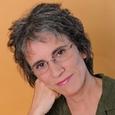In the past month I've been checking in with my clients about how far they've come and where they want to go next. We've been focusing on what matters to them most as they look forward to 2015.
Aleesha is looking for meaningful work. She tells me that education jobs are scarce, and indeed she's sent quite a few letters and had little response.
Brendan is working long hours at a startup, and his wife is complaining. He feels impossibly pulled between the demands of the two people he cares about most.
Darryl is a high school junior who wants a B in math, but he's close to a D and struggling. He says he's not very good at math.
For each of them, it's a challenge to staying focused. Focus is easy when the path to your goal is clear. It's harder when the obstacles are large enough that you can't easily see your way around them.
Scarce jobs. Impossibly pulled. Not good at math. These don't seem like things you can easily change. Maybe you can relate to this. Maybe there’s something big you want to do this year -- like be more present with your family, change careers, or find a way to be less stressed, no matter how much is on your to do list.
But here's the good news: You don't have to change the economy, your partner, or your math ability. How well and how often you reach your goals is rarely about your innate ability or outside circumstances, however difficult.
The biggest challenge of the new year is changing your mindset.
Two kinds of mindset
Carol Dweck of Stanford University* did a series of studies that showed that for many people, difficult problems and setbacks are frustrating. For others, they're motivating. The difference?
People with what she calls a “fixed mindset” see intelligence, talent, and the ability to succeed as things you either have or you don't. People with this mindset set performance goals: get the job, make the “B”, or get their partner to see how hard they're working.
People with a “growth mindset,” on the other hand, see intelligence, talent, and ability as something you can develop. These people set “learning” goals: create a compelling cover letter, build a loving relationship, understand math.
What kind of mindset do you have?
When you have a setback, what kinds of things do you tell yourself? The statements below suggest a “fixed mindset.”
I don't have time (this is one of my favorites)
I'm not very good with names.
I'm not a people person.
Budgets aren't my thing.
Of course I get mad when people treat me like that. What do you expect?
I can't control my moods.
I don't have the smarts / talent for that
The right opportunity hasn't come along
This list, on the other hand, suggests a “growth mindset”:
How can I get it done?
What can I learn from that?
What else can I try?
How can I handle it better next time?
Where can I find the time?
The growth perspective
My job in the new year is to help Aleesha, Brendan, and Darryl shift from a fixed mindset to a growth mindset, so they can learn what they need to succeed.
In fact, we've already started. Brendan is shifting the way he responds in conversations. Darryl is changing the way he studies. Already they're getting a different response.
They're making shifts that are simple and often practical. But they're doing more than picking up a few tips. Underneath the new behavior is a shift in the way they see the world.
You'll have many challenges in the new year. That's just life. But how you approach those challenges will likely make the difference between reaching your goals or letting them fall by the wayside.
If you’d like to start the shift into a growth mindset, check out this diagram from Carol Dweck. The next step is to notice your thoughts, especially when something doesn’t go the way you’d like, and see which mindset they tend to reflect.
And if you’d like some help with making a shift to a growth mindset in the new year, let's talk.
Happy New Year!
* Dweck, Carol S. Mindset: The New Psychology of Success. London: Robinson, 2012.
Pat LaDouceur, PhD, is author of the forthcoming book, The Remarkable Power of Small Choices: Simple Actions that Shape Your Life. She is a licensed psychotherapist (CA24003), Board Certified Neurofeedback practitioner, author, speaker, and former Director of Operations at a nonprofit agency. For almost three decades, Pat has taught staff, students, and her private clients to be more confident, focused and connected at work and in meaningful relationships. If you like what you're reading, sign up for her Anxiety-Free News at http://www.LaDouceurMFT.com.

Post new comment
Please Register or Login to post new comment.